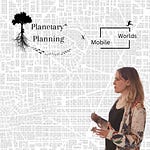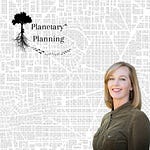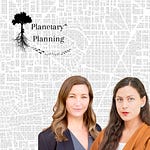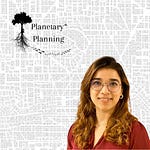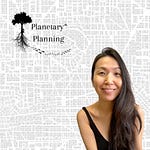In this episode, we speak with Isabelle Doucet, Professor of theory and history of architecture at Chalmers University of Technology, Sweden. She here reflects on multi-species perspectives and social and environmental justice. I, Kim, met her at the IRS Academy in Berlin last spring, and am very glad I subsequently asked her to come on the podcast. This episode is a fascinating exploration into a very multi-disciplinary take on architecture, design and how to consider the “other” while de-centering the frequently white, male and human dominant perspectives we are faced with around the world today.
Isabelle cites a wealth of authors that we cite / link to below and heartily invite our listeners to have a look into. The list includes Anna Tsing, Donna Haraway and Rosi Braidotti, among many others. She also provides examples of architectural visions and experiences that truly consider multi-species realities in surprisingly realistic ways.
Throughout the journey of this conversation, Isabelle speaks of how a multi-species perspective “forces us to think the world through connections and entanglements”, and to move beyond human exceptionalism. She highlights how important storytelling is for “de-centering” the designer, and how central economics can be for the potential for change in these regards: challenging contemporary practices in relation to land and the accumulation of value through built structures for example. Finally we also broach the subject of participation and how including various perspectives is a theme that equally surfaces in architecture and planning, and yet remains a challenge, even more so when attempting to move beyond the human.
Take-aways for planners, by Isabelle Doucet:
Ask the question of who benefits, but also of who is damaged? In both architecture and planning there seems to be strong positivity about the make-ability of the world, but this often neglects the (conscious or unconscious) damages that this “making” can also inflict.
Planning has an amazing opportunity as a broad field to bring together environmental, social and spatial justice and questions of the owning, (re)claiming, and accessibility of land.
References:
Isabelle Doucet, Interspecies Encounters: Design (Hi)stories, Practices of Care, and Challenges. In K. Förster (Ed.), Environmental Histories of Architecture. Canadian Centre for Architecture. https://www.librarystack.org/environmental-histories-of-architecture/
Isabelle Doucet, Anticipating Fabulous Futures, E-Flux Journal (Overgrowth Series), September 2019. https://www.e-flux.com/architecture/overgrowth/284918/anticipating-fabulous-futures/
Isabelle Doucet, Architectural Storytelling: A Space Between Critical Practice and Fragile Environments. In: Hélène Frichot, Adrià Carbonell, Hannes Frykholm, Sepideh Karami, eds., Infrastructural Love. Caring for Our Architectural Support Systems (Birkhäuser 2022).
Akwugo Emejulu, Fugitive Feminism (Silver Press 2022) https://www.silverpress.org/products/fugitive-feminism?srsltid=AfmBOop5h2awzKQaWV6BMf_NjKzji3U8u05vG2nAzAa28jivQrakP0Lv
Astrida Neimanis, Cecilia Åsberg, & Johan Hedrén, Four Problems, Four Directions for Environmental Humanities: Toward Critical Posthumanities for the Anthropocene. Ethics and the Environment, 20(1), 2015, 67–97. https://doi.org/10.2979/ethicsenviro.20.1.67
May-Britt Öhman, “Settler Colonialism in Ungreen, Climate-Unfriendly Disguise & As a Tool for Genocide” in: Climate: Our Right to Breathe, eds. Chu, Down, Mabaso et al. (L’Internationale And K verlag, 2022) (Book chapter. Access: https://internationaleonline.org/site/assets/files/8140/lio_climate_2022.pdf)
Thom Van Dooren and Deborah Bird Rose, Lively Ethography: Storying Animist Worlds, Environmental Humanities 8, no. 1 (May 2016): 77–94. https://doi.org/10.1215/22011919-3527731




